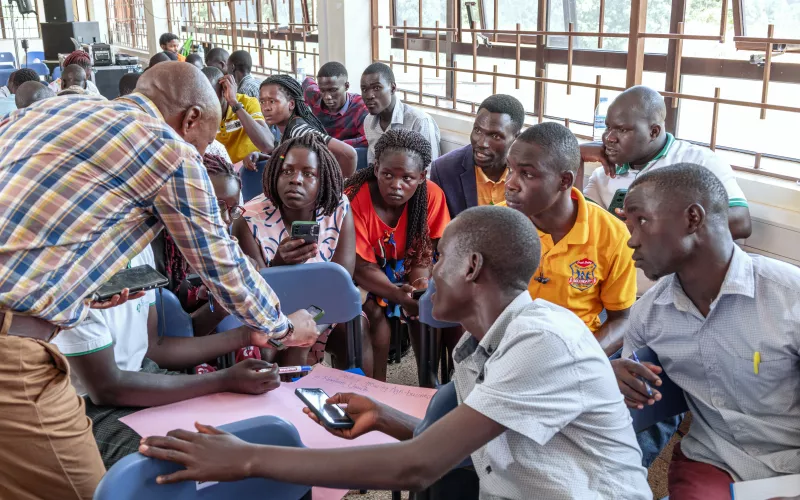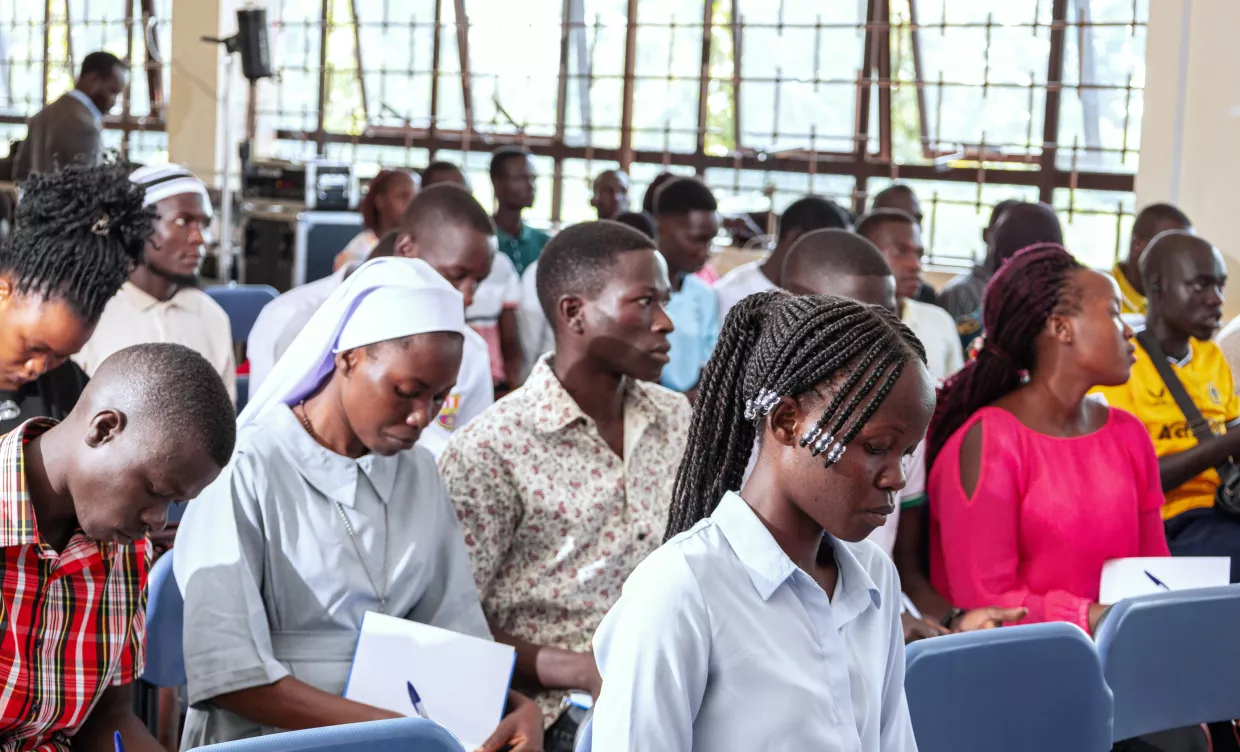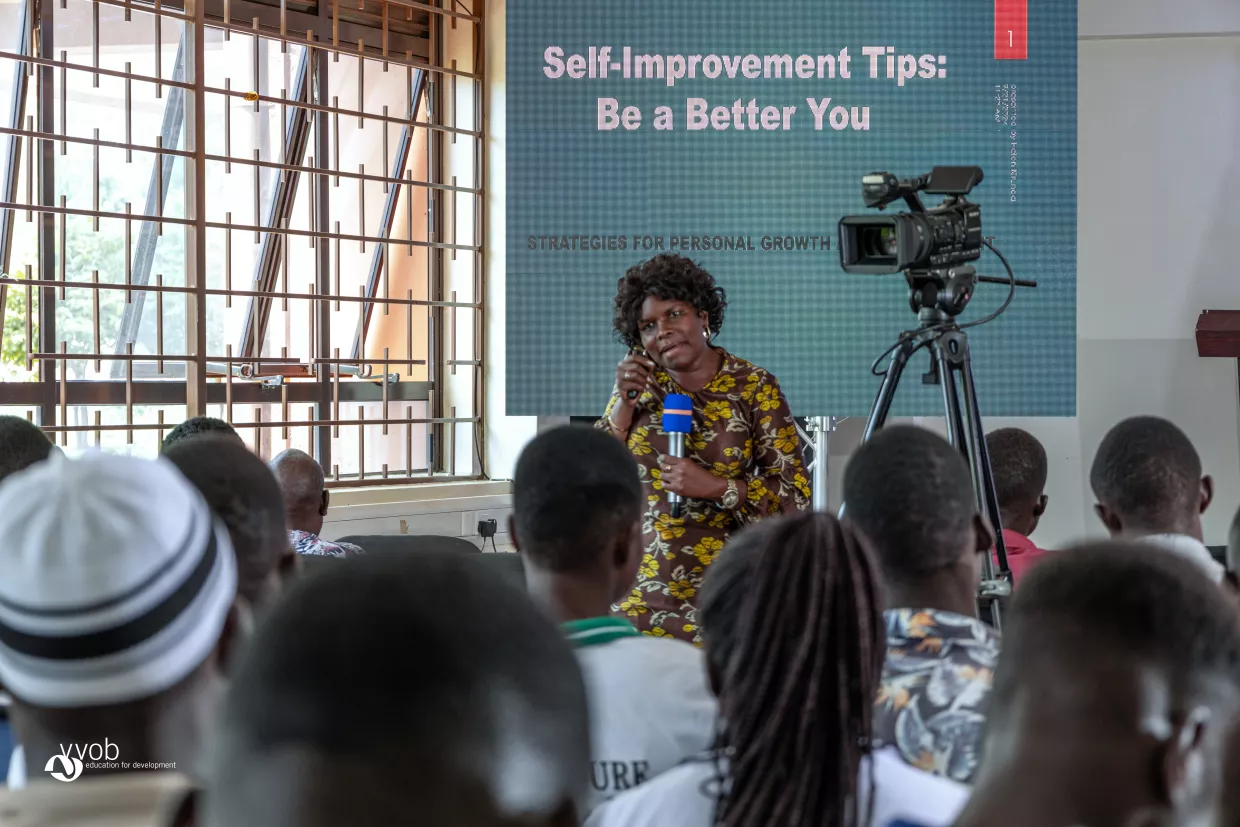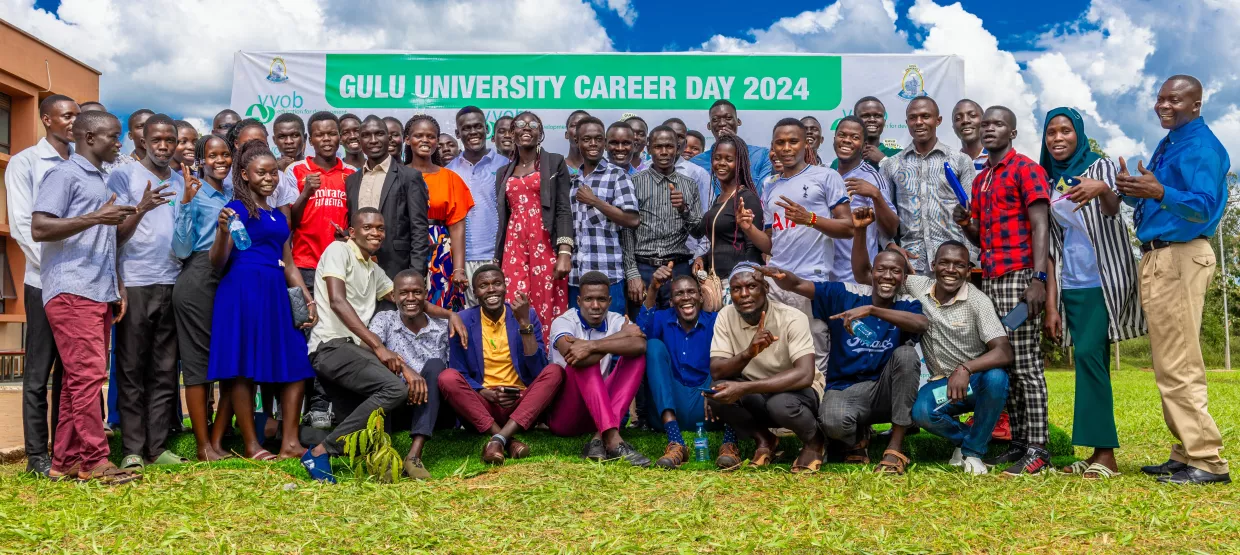Join our newsletter
By subscribing you agree to our Privacy Policy

On Saturday 21 September 2024, Gulu University, in partnership with VVOB, hosted a Career Day under the theme "My Career, My Future: Creating an Effective Teaching Workforce." The event brought together more than 150 students from the Bachelor of Business Education and Bachelor of Science Education (Agriculture) programmes, alongside lecturers, career coaches, and education leaders.
Under VVOB’s Learning Agriculture and Entrepreneurship Practically (LEAP) project, Career Days are implemented to put theory into action. Teachers and school leaders are equipped with practices like Study and Career Guidance (SCG) to enable student engagement and career readiness in agriculture and entrepreneurship. SCG exposes students to the agricultural world of work, helping them make informed decisions about employment in agriculture and entrepreneurship. It aims to build aspirations, provide industry contacts, and develop decision-making skills for career choices. VVOB supports teachers in delivering effective career talks aligned with the curriculum and guides them on engaging relevant industry actors.
This Career Day event comes at an important time for Uganda’s education sector. According to the 2021 National Service Delivery Survey on Education by the Uganda Bureau of Statistics, the country has over 380,000 teachers as recorded on the Teacher Management Information System. Even then, Uganda still faces many challenges. Challenges include overcrowded classrooms and a growing teacher-to-pupil ratio, which now stands at 1:53 in primary schools. In rural areas, these figures are even more pronounced, with some classrooms having more than 100 learners being taught by one teacher. Career Day serves as a proactive step to address these challenges, inspiring future teachers and showcasing pathways for professional development to improve the quality of education.
Career Day was designed to inspire and guide students' career journeys, focusing on the skills and mindsets needed to excel in the ever-evolving education sector. Through panel discussions and presentations from experts in the education sector, students understand the realities and opportunities within the education profession. The event also emphasises the importance of professional growth, continuous learning, and self-improvement in navigating the teaching landscape in Uganda.

This year’s Career Day helped students understand the opportunities and challenges in the education sector. The keynote speaker, Mr. Ssonko, shared his teaching journey, which began in a rural school where he taught multiple classes due to a teacher shortage. He urged student teachers to appreciate small beginnings and focus on continuous skill development to succeed in their careers.
Mr. Ssonko acknowledged that the staffing shortage is not solely a recruitment issue, but also involves the need for infrastructure improvements, better wages, and working conditions, particularly in rural areas. He spoke of his challenges sharing that his first salary was just 80,000 Uganda shillings (about 20 USD) in a rural school with poor infrastructure. Still, he remained committed to giving his best. He cautioned them to be aware of these challenges as they enter the job market. He emphasised that he didn’t despise those days of small beginnings. This eventually led to a successful career and ultimately to him owning a school.
Ms. Hellen Kirunda, who is very passionate about mentorship and founded a vocational school that empowers underprivileged youth, and women spoke about personal growth and professional networking. She emphasised the importance of time management, healthy lifestyles, and continuous skills enhancement to stand out in the teaching field. “A lot of the best opportunities you are bound to get lie in the networks you make,” she reminded students, underscoring the role of connections in career advancement. Ms. Kirunda’s insights offered practical guidance for student teachers on building a foundation for long-term success in the education sector.

Mr. Mukasa Sirajeh, a multifaceted professional with expertise in law, finance, and education spoke to the student teachers about the future of work. He stressed the important role of technology in education. He urged student teachers, stating, “If you haven’t invested in a smartphone, you won’t have work in the future.” While this may seem like an obvious suggestion and maybe one that’s easily achievable, a big percentage of Uganda’s teaching workforce still faces technological challenges. The integration of technology in education remains limited due to infrastructural barriers such as unstable electricity and limited internet connectivity and access to devices. Without these, even basic digital tools are difficult to implement. There is also a need for more widespread training to integrate technology into the classroom effectively. Initiatives such as the Uganda National Teachers' Union Digital Skills Programme are working to bridge this gap by improving digital literacy among teachers.
In addition, student teachers had the opportunity to ask questions and receive practical advice from experienced educators who had successfully navigated the challenges of building a career in education. It was exciting to see these student teachers eager to learn and fully engaged throughout the sessions.
Events like this are important for shaping a high-quality teaching workforce. They provide a platform for future teachers, lecturers and educators to learn from professionals, and gain understanding that will support them in their careers. Career Days also highlight the importance of collaboration between institutions like Gulu University and organisations like VVOB. Through the LEAP project, young professionals are equipped with the skills, knowledge, and most importantly, motivation necessary to address the challenges in the education sector. As Gulu University continues to teach the next generation of educators, Career Day will be an important step toward building a motivated and well-prepared teaching workforce that can make an impact on Uganda's education system.

By subscribing you agree to our Privacy Policy
Julien Dillensplein 1 bus 2A
1060 Brussels
Belgium